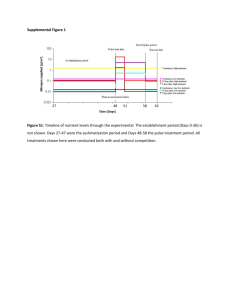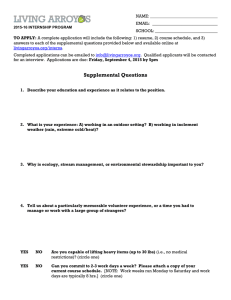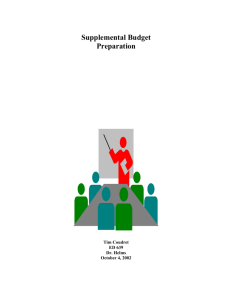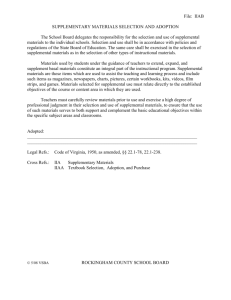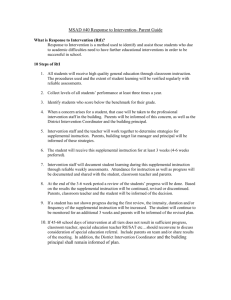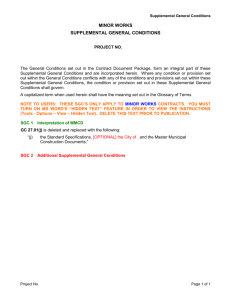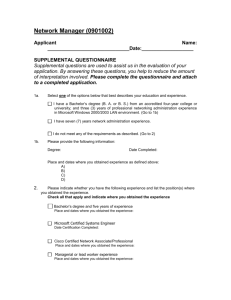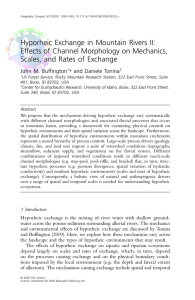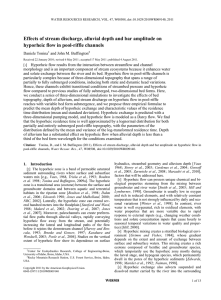Syllabus and schedule
advertisement
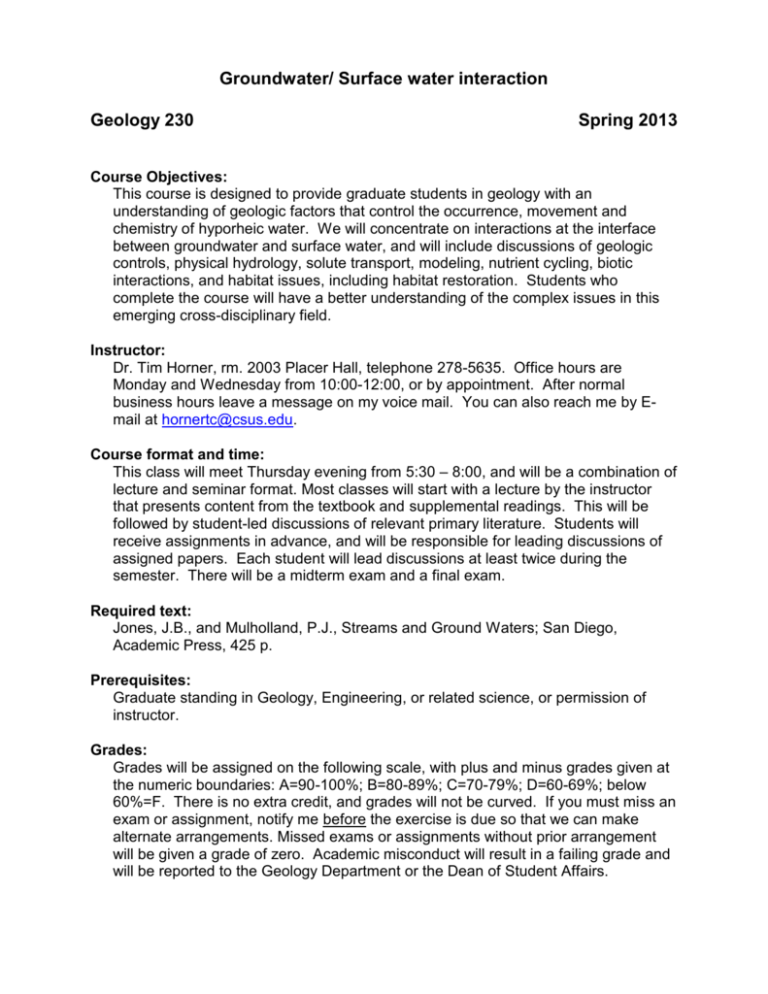
Groundwater/ Surface water interaction Geology 230 Spring 2013 Course Objectives: This course is designed to provide graduate students in geology with an understanding of geologic factors that control the occurrence, movement and chemistry of hyporheic water. We will concentrate on interactions at the interface between groundwater and surface water, and will include discussions of geologic controls, physical hydrology, solute transport, modeling, nutrient cycling, biotic interactions, and habitat issues, including habitat restoration. Students who complete the course will have a better understanding of the complex issues in this emerging cross-disciplinary field. Instructor: Dr. Tim Horner, rm. 2003 Placer Hall, telephone 278-5635. Office hours are Monday and Wednesday from 10:00-12:00, or by appointment. After normal business hours leave a message on my voice mail. You can also reach me by Email at hornertc@csus.edu. Course format and time: This class will meet Thursday evening from 5:30 – 8:00, and will be a combination of lecture and seminar format. Most classes will start with a lecture by the instructor that presents content from the textbook and supplemental readings. This will be followed by student-led discussions of relevant primary literature. Students will receive assignments in advance, and will be responsible for leading discussions of assigned papers. Each student will lead discussions at least twice during the semester. There will be a midterm exam and a final exam. Required text: Jones, J.B., and Mulholland, P.J., Streams and Ground Waters; San Diego, Academic Press, 425 p. Prerequisites: Graduate standing in Geology, Engineering, or related science, or permission of instructor. Grades: Grades will be assigned on the following scale, with plus and minus grades given at the numeric boundaries: A=90-100%; B=80-89%; C=70-79%; D=60-69%; below 60%=F. There is no extra credit, and grades will not be curved. If you must miss an exam or assignment, notify me before the exercise is due so that we can make alternate arrangements. Missed exams or assignments without prior arrangement will be given a grade of zero. Academic misconduct will result in a failing grade and will be reported to the Geology Department or the Dean of Student Affairs. Evaluation: Grades will be assigned based on the following categories: Attendance and participation Individual student-led discussions Midterm exam: Final exam Course Schedule 20% 30% 25% 25% Reading assignments** Week 1: Stream classification Supplemental material Week 2: Quantifying hyporheic interactions J&M, pp. 3-41 Week 3: Influence of the riparian zone on stream chemistry, solute transport J&M, pp. 83-107 Week 4: Arid hydrology and the hyporheic zone J&M, pp. 111-133 Week 5: Nutrient cycling- nitrogen J&M, pp. 197-216 Week 6: Nutrient cycling- phosphorus J&M pp. 221-233 Week 7: Nutrient cycling- carbon J&M, pp. 237-253 Week 8: Thursday, March 21st - Midterm Exam Week 9: Anoxia, anaerobic biogeochemical reactions J&M, pp. 259-279 Week 10: Primary productivity and microorganisms J&M, pp. 287-303 Week 11: Wetlands delineation Supplemental material Week 12: Vernal pools Supplemental material Week 13: Heat flow measurements and modeling Supplemental material Week 14: Restoration ecology 1 Supplemental material Week 15: Restoration ecology 2 Supplemental material Comprehensive Final exam: Tuesday, May 21st ** J&M = Jones and Mulholland (textbook)
